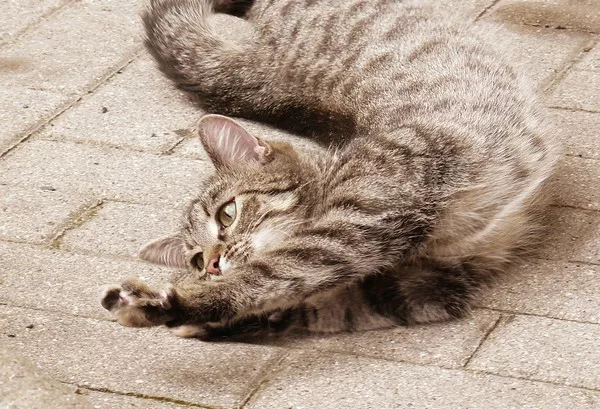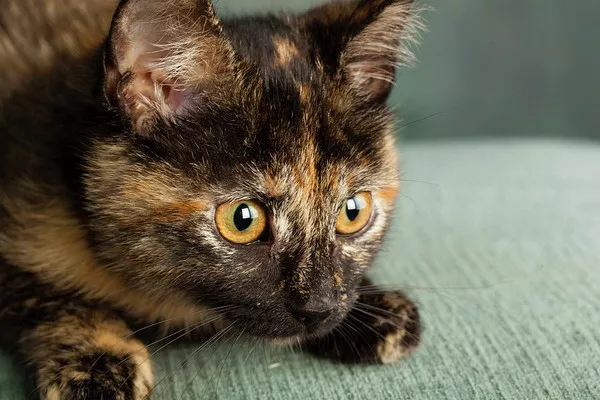Welcoming a kitten into your home brings joy and excitement, but it also comes with the responsibility of ensuring their health and well-being. Diarrhea is a common concern among kittens, and as a responsible pet owner, you may wonder, “What can I give my kitten for diarrhea?” In this comprehensive guide, we explore the causes of kitten diarrhea, the importance of veterinary consultation, and a range of potential remedies, including home care and medical interventions.
Understanding Kitten Diarrhea: Causes and Culprits
Dietary Indiscretions: Exploring Culinary Adventures
Kittens are curious explorers, and sometimes their culinary adventures lead to dietary indiscretions. This section unravels how changes in diet, consuming inappropriate or spoiled food, or scavenging can trigger diarrhea in kittens.
Parasites and Worms: Unseen Intruders
Internal parasites, such as worms, can wreak havoc on a kitten’s digestive system. Explore the common parasites that may lead to diarrhea, the symptoms they present, and the importance of regular deworming in maintaining your kitten’s health.
Bacterial and Viral Infections: Culprits in Disguise
Bacterial and viral infections, such as salmonella or feline panleukopenia, can cause gastrointestinal distress in kittens. This subsection delves into the symptoms, transmission, and preventive measures against infectious agents that may contribute to diarrhea.
When to Seek Veterinary Advice: The Importance of Professional Guidance
Dehydration Dangers: Recognizing the Signs
Diarrhea can quickly lead to dehydration, posing a serious threat to a kitten’s health. Understand the signs of dehydration, such as lethargy and sunken eyes, and the crucial role prompt veterinary intervention plays in managing this potentially life-threatening condition.
Persistent Diarrhea: Red Flags for Underlying Issues
If your kitten experiences persistent diarrhea, it may indicate underlying health issues. This part explores the red flags that signal the need for veterinary attention, including chronic diarrhea, blood in stool, and changes in behavior.
Kitten Age and Vulnerability: Pediatric Considerations
Younger kittens, especially those below eight weeks of age, are more susceptible to health challenges. This section outlines the unique considerations and potential complications associated with diarrhea in pediatric kittens, emphasizing the importance of swift veterinary consultation.
Home Care Remedies: Tending to Your Kitten’s Upset Tummy
Bland Diet Basics: The Healing Power of Plain Foods
Introducing a bland diet is a cornerstone of home care for kittens with diarrhea. Explore the types of plain foods, such as boiled chicken and rice, that can soothe your kitten’s digestive system and promote a swift recovery.
Probiotics for Digestive Harmony
Probiotics play a vital role in restoring the balance of good bacteria in a kitten’s gut. This part delves into the benefits of probiotics, their role in managing diarrhea, and the different ways to incorporate them into your kitten’s diet.
Hydration Heroes: Preventing Dehydration at Home
Ensuring proper hydration is crucial when managing kitten diarrhea at home. Explore hydration strategies, including oral rehydration solutions and encouraging water intake, to safeguard your kitten against the risks of dehydration.
Over-the-Counter Options: Caution and Considerations
Anti-Diarrheal Medications: A Delicate Balance
While some over-the-counter anti-diarrheal medications are available, their use in kittens requires caution. This section explores the types of medications, their potential benefits, and the importance of consulting with a veterinarian before administering any treatment.
Fiber Supplements: Aiding Digestive Regularity
Fiber supplements can assist in normalizing bowel movements for kittens with diarrhea. Understand the types of fiber, appropriate dosage, and potential side effects associated with using fiber supplements as part of your kitten’s care plan.
Electrolyte Solutions: Replenishing Essential Nutrients
Electrolyte solutions are valuable in replenishing essential nutrients lost during bouts of diarrhea. This subsection provides insights into commercially available options, homemade alternatives, and the importance of balancing electrolytes for your kitten’s recovery.
Veterinary Interventions: Medical Approaches to Kitten Diarrhea
Diagnostic Tests: Unraveling the Mystery
Veterinarians employ various diagnostic tests to identify the root cause of kitten diarrhea. Explore common diagnostic procedures, including fecal examinations, blood tests, and imaging studies, that help pinpoint the underlying issues requiring medical intervention.
Prescription Medications: Targeting Specific Causes
Certain cases of kitten diarrhea may necessitate prescription medications. This part outlines the types of medications, their targeted uses, and the importance of strictly adhering to veterinary recommendations for dosage and administration.
Hospitalization Considerations: Severe Cases Requiring Intensive Care
In severe cases, hospitalization may be necessary to provide intensive care for kittens with diarrhea. Understand the circumstances that warrant hospitalization, the supportive measures provided, and the role of veterinary professionals in managing critical cases.
Preventive Measures: Safeguarding Your Kitten’s Digestive Health
Proactive Parasite Control: Routine Deworming Practices
Implementing routine deworming practices is a crucial aspect of preventive care for kitten diarrhea. This section provides guidance on deworming schedules, the types of parasites targeted, and the role of preventive medications in maintaining your kitten’s digestive health.
Balanced Nutrition: The Foundation of Digestive Well-being
A well-balanced and age-appropriate diet is fundamental in preventing gastrointestinal issues in kittens. Explore the nutritional requirements for kittens at different life stages and how a wholesome diet contributes to digestive well-being.
Environmental Hygiene: Minimizing Contamination Risks
Maintaining a clean and hygienic environment is paramount in preventing the spread of infectious agents that can lead to diarrhea. This part outlines effective hygiene practices, including litter box management and regular sanitation routines, to minimize contamination risks.
Conclusion: Nurturing Your Kitten Back to Health
In conclusion, understanding what you can give your kitten for diarrhea involves a comprehensive approach that considers the underlying causes, age-specific considerations, and a range of remedies from home care to veterinary interventions. As a responsible pet owner, being attuned to your kitten’s health, recognizing red flags, and seeking timely veterinary guidance are crucial steps in ensuring their well-being. This comprehensive guide aims to empower you with the knowledge needed to navigate and address kitten diarrhea, fostering a healthy and happy life for your feline companion.



























